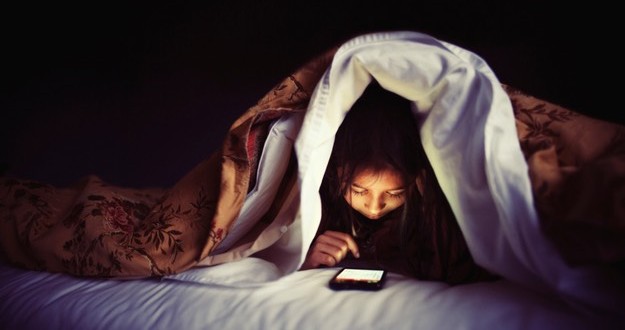Too much exposure to screens affects the sleep patterns of teenagers, a study has shown.
Norwegian researchers looked at over 10,000 teenagers aged between 16 and 19. All were asked about the amount of time they spent looking at various screens, including televisions, computers, smartphones, tablets and game consoles.
The teens were also asked about their sleeping habits during the week and the weekend, including when they usually went to bed, how long it took them to fall asleep and how much sleep they needed to feel rested.
The researchers found some differences in relation to the types of devices used by boys and girls. Boys were more likely to favour game consoles, while girls appeared to prefer smartphones and Mp3 players. Overall, boys spent more time playing games on computers and consoles, while girls spent more time chatting online.
Almost all of the participants admitted to using at least one electronic device shortly before going to bed (an hour).
The study found that those who used any kind of device during the day and shortly before bedtime were much more likely to take longer than one hour to fall asleep.
In particular, the use of a smartphone, Mp3 player or computer in the hour before bedtime was strongly linked with taking longer to fall asleep.
Those who used screens for four or more hours per day had a 49% increased risk of taking longer than an hour to fall asleep. However, even two hours or more was strongly linked to a long falling asleep time and shorter sleep duration overall.
The teenagers said that in order to feel rested, they needed an average of eight or nine hours of sleep per night. However the study found that those who spent at least two hours chatting online or emailing were at least three times more likely to sleep for under five hours.
Those who spent more than four hours in front on any kind of screen were at least three-and-a-half times more likely to sleep for less than five hours.
The study also noted that teenagers who used more than one type of electronic device were more likely to take longer to fall asleep, and to sleep for less time, than those who used just one device.
Those who used four or more devices were 26% more likely to take at least one hour to fall asleep compared to those who used one device.
Meanwhile, those who used two or three devices were 50% more likely to sleep for less than five hours compared to those who used just one device. Those who used four or more devices were 75% more likely to sleep for fewer than five hours.
The researchers said that screen time may affect sleep by replacing actual sleep time, or it may affect the quality of sleep by stimulating the nervous system. The light given off by these devices may also interfere with the body’s circadian rhythm (internal clock).
“The recommendations for healthy media use given to parents and adolescents need updating, and age-specific guidelines regarding the quantity and timing of electronic media use should be developed.
“The current recommendation is not to have a TV in the bedroom. It seems, however, that there may be other electronic devices exerting the same negative influence on sleep, such as PCs and mobile phones. The results confirm recommendations for restricting media use in general,” the researchers said.
Agencies/Canadajournal
 Canada Journal – News of the World Articles and videos to bring you the biggest Canadian news stories from across the country every day
Canada Journal – News of the World Articles and videos to bring you the biggest Canadian news stories from across the country every day



